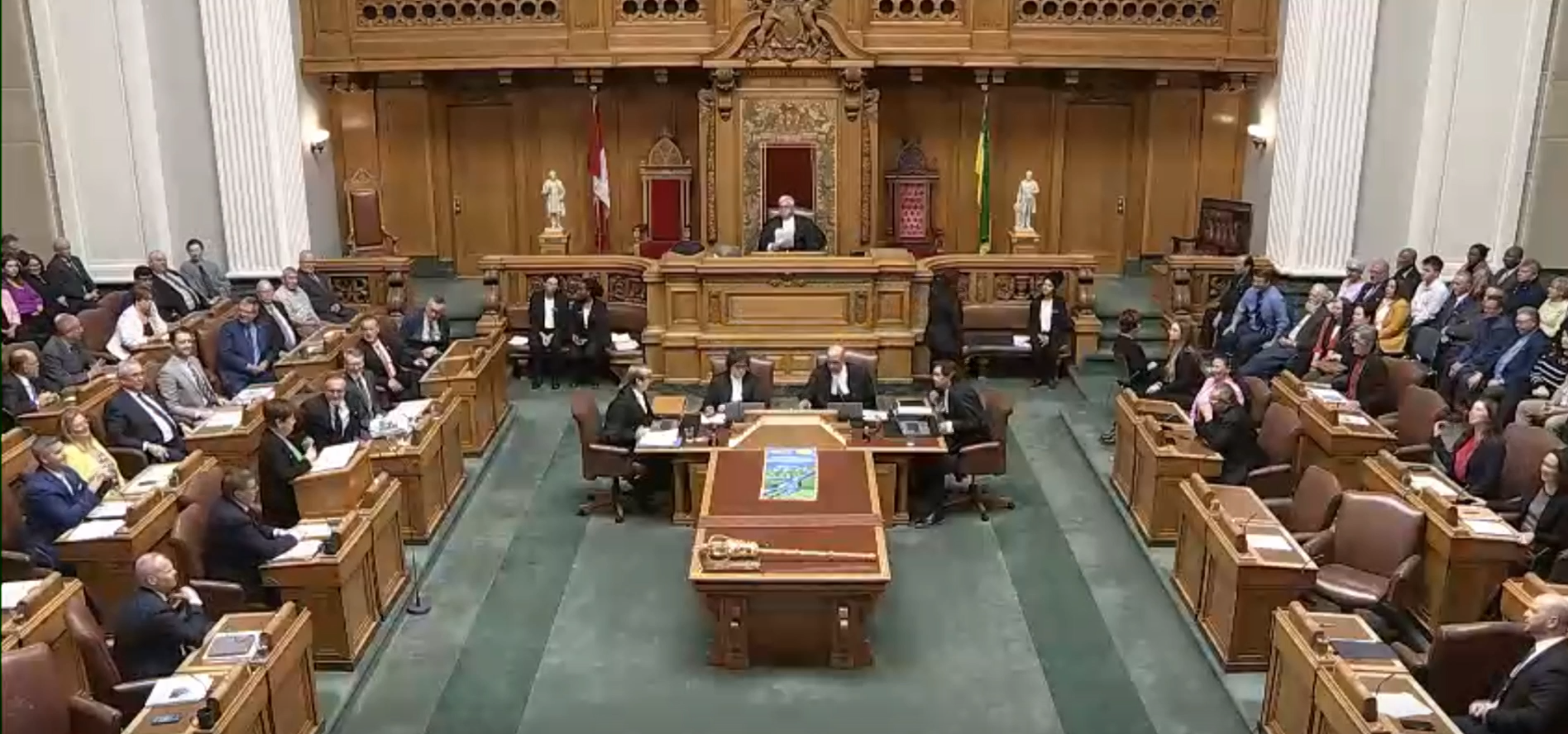The Saskatchewan Party captured 32 seats, slightly above the majority threshold, while the NDP gained ground, winning 22 seats—a notable improvement from their previous 14. Moe acknowledged the significant presence of the opposition in the legislature, particularly in urban centers like Regina and Saskatoon, where the NDP performed strongly.
In his victory speech in Shellbrook, “I’ve heard the message delivered tonight,” Moe said, recognizing that the party faced a reduced margin compared to previous years. “The Saskatchewan Party will be a government that works for all the people of Saskatchewan.” Moe also emphasized his intent to bridge the perceived divisions, rejecting the notion of a polarized province. “Regardless of who you voted for, you did so because you wanted what was best for the province that we love and live in, and in this, we are united,” he added.
This election highlighted a distinct urban-rural divide, with the Saskatchewan Party maintaining dominance in rural ridings while the NDP saw success in urban areas. Under Beck’s leadership, the NDP made significant gains, nearly sweeping both Regina and Saskatoon. The results reveal a growing appetite for change among urban voters, potentially setting the stage for intensified debates in the provincial legislature on issues affecting city dwellers.
Beck, addressing her supporters on election night, conveyed optimism despite the NDP’s loss. “We may not have crossed the finish line first tonight, but we have changed the landscape in Saskatchewan,” she said. Beck believes the increased number of seats positions the NDP to advocate more effectively for urban interests, and she sees the results as a foundation for future growth.
During the campaign, the Saskatchewan Party’s platform centered on maintaining economic growth, investing in provincial infrastructure, and ensuring the province remains a competitive environment for businesses. As Saskatchewan navigates economic uncertainties tied to global market fluctuations, Moe emphasized his commitment to “building a prosperous future” by supporting industries vital to the province, such as agriculture, energy, and mining.
Conversely, the NDP campaigned on a progressive platform focused on healthcare, education, and housing—issues that resonated particularly with urban voters. Beck has vowed to continue pressing these topics, believing they represent the concerns of Saskatchewan residents seeking robust support systems and progressive policy approaches.
With a bolstered NDP opposition, Moe and the Saskatchewan Party face the task of governing under increased scrutiny. The opposition’s significant gains mean that Moe’s policies will likely encounter more resistance and debate, especially on social and economic matters affecting urban populations.
Political analysts suggest that the Saskatchewan Party may need to pivot on certain policies to address the urban-rural divide, especially if they wish to regain support from urban voters who drifted toward the NDP. The strength of the NDP’s presence in Saskatchewan’s major cities may press Moe’s government to focus on urban issues, which traditionally receive less attention in the provincial discourse dominated by rural concerns.
The election results signify more than a simple victory for Moe and his party; they reflect the shifting political undercurrents that may shape Saskatchewan’s future. With an energized opposition and a clear urban-rural divide, Moe’s government faces a unique opportunity—and challenge—to bridge these divides and lead Saskatchewan into what he described as a “brighter future.”

